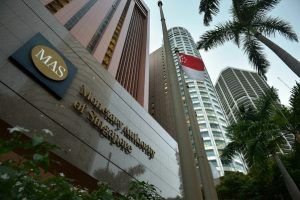Money Laundering In Singapore

In 2016, as reported by a global index, Singapore has overtook Hong Kong to become the world’s third-best financial centre, behind London and New York. According to Hugh Young, Managing Director of Aberdeen Asset Management (Asia), one of the main driving factor for this result is that Singapore has government policies that are tailored to meet the needs of the finance sector and other businesses. On top of that, they are armed with a strong regulatory framework to fend off dirty money and terrorism financing.
However, despite that, they are not spared from being susceptible to money laundering. From 2014 to 2016, MAS (Monetary Authority of Singapore) has imposed 27 financial institutions for offences linked to money laundering and terrorism financing. In July 2016, MAS has found lapses and weakness in anti-money laundering controls in Singapore-based financial institutions, following their probe to Malaysia’s 1MDB scandal. Lapses and weaknesses in the processes for accepting clients and monitoring transactions in banks like DBS, Standard Chartered Bank’s Singapore branch, BSI Bank, UBS’ Singapore branch, Falcon Private Bank’s local branch and Raffles Money Change. There was also undue delay in detecting and reporting suspicious transaction.
FATF (Financial Action Task Force) and Asia/Pacific Group on Money Laundering has conducted an assessment on Singapore’s anti-money laundering and counter-terrorist financing system. The assessment. It was found that while authorities have a comprehensive understanding of their money laundering and terrorist financing risks, and are taking measures to alleviate them. However, on the institutions level, a less mature understanding of money laundering and terrorist financing risks are demonstrated. Hence, there is a need to work on this area.
Singapore has one of the lowest domestic crime rates in the world, thus the majority of Singapore’s money laundering risks are committed overseas. According to statistics by Singapore authorities, between 2008 to 2014, 66% of all money laundering investigations are foreign predicate offences, while 27% are domestic. 77% if the funds managed in Singapore are foreign sourced, with the majority of assets under management from Asia-Pacific region. This makes Singapore more subjected to money laundering and terrorist financing risks.
Hence, robust controls are in place to detect and deter the flow of illicit funds through Singapore’s financial system, such as the need for financial institutions to identify and know their customers to conduct regular account reviews, to monitor and report suspicious transaction.
All the guidelines can be found here: Notices on the Prevention of Money Laundering and Countering the Financing of Terrorism
Under MAS act, any financial institution that is found to refuse or fail to comply with the requirements according to the guidelines will be liable to a fine not exceeding $1 million.
Compliance Strategies & Guidelines Based on the Latest FATF Recommendations is a 2-day course that aims to equip delegates with a deeper understanding of the risks and practices of money laundering. They ought to recognise the vulnerability of Singapore due to its uniqueness as both a global financial and trade hub. Delegates will also be participate in an active discussion on improving the FATF compliance standards. For more information, please visit us at http://www.opuskinetic.com/training or contact us at info@opuskinetic.com
Opus Kinetic believes that people are why organisations are successful, and giving people the knowledge to perform well at their job is integral for success. We pride ourselves as the premier provider of knowledge, offering acclaimed in-house training, leadership training courses, oil and gas training courses, courses that target health safety and environment, etc. Our training courses are well researched and updated with the latest industry trends. For more information on our professional training programs, you can visit us at http://www.opuskinetic.com/training.


